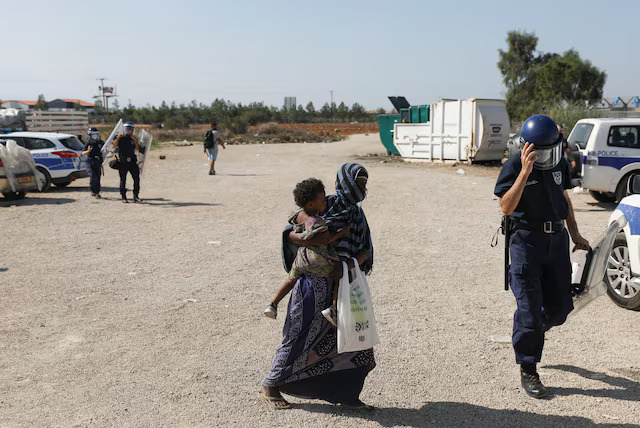Migrant workers in Cyprus are facing serious mistreatment, according to a new report by a European human rights group. These workers, mostly from Asia, often suffer from low wages, long working hours, and little protection from the law. The report, published by the Council of Europe’s Group of Experts on Action against Trafficking in Human Beings (GRETA), warns that many of these migrants are at risk of human trafficking.
There are over 20,000 domestic workers in Cyprus, many from the Philippines, Sri Lanka, Nepal, and Vietnam. They help take care of homes and families in the southern part of the island. But despite their important role, they are not treated fairly. The report shows that some earn as little as €1.29 per hour—much less than the legal minimum wage in Cyprus.
Many of these workers work around 58 hours a week, even though their contracts say they should only work 42 hours. Their official salary is €460 a month, but after deductions for food and housing, they take home even less. In comparison, other workers in Cyprus get at least €1,000 per month. This large pay gap makes it easy for employers to take advantage of migrants.
GRETA says Cyprus has made some legal changes, but they are not enough. The group is urging the government to give migrant workers the same pay and rights as local and EU workers. It also calls for stronger systems to protect migrants from trafficking, better access to legal help, and punishment for abusive employers.
The report also warns that unequal treatment helps human trafficking grow. Many migrants arrive in Cyprus legally, but the poor working conditions break their contracts. Some become trapped because they can’t afford to leave or are afraid to speak out. The Ombudsman in Cyprus has raised these concerns before, showing that this is a long-term problem.
Rights groups across Europe support GRETA’s message. They say equal rights for all workers are necessary to stop abuse. Without strong laws and proper checks, more migrants will continue to suffer. The report also connects these issues to new systems like ETIAS, which will screen travelers before they enter Europe. But even legal entry doesn’t protect migrants from bad employers.
The European Union is now being urged to look beyond just border control and also focus on how migrants are treated after they arrive. The report may lead to calls for common rules across EU countries to protect workers in sectors like caregiving, farming, and hospitality. These areas often rely on migrant labor and are at high risk of abuse.
In the end, GRETA’s report is a strong reminder that migrant workers deserve fairness and dignity. They help keep homes and economies running, but are often treated unfairly and ignored. Real change is needed to protect them from being trapped in unsafe and unfair jobs.

